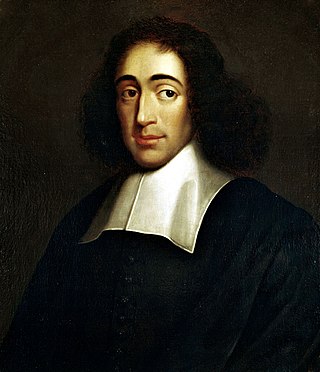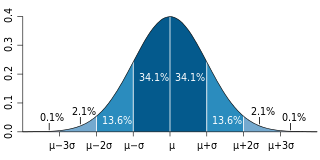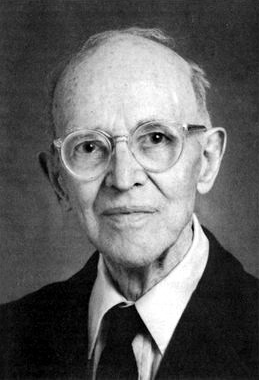Related Research Articles

Baruch (de) Spinoza, also known under his Latinized pen name Benedictus de Spinoza, was a philosopher of Portuguese-Jewish origin. As a forerunner of the Age of Reason, Spinoza significantly influenced modern biblical criticism, 17th-century Rationalism, and contemporary conceptions of the self and the universe, establishing himself as one of the most important and radical philosophers of the early modern period. He was influenced by Stoicism, Maimonides, Niccolò Machiavelli, René Descartes, Thomas Hobbes, and a variety of heterodox Christian thinkers of his day.

Monism attributes oneness or singleness to a concept, such as to existence. Various kinds of monism can be distinguished:
Pantheism is the philosophical religious belief that reality, the universe, and nature are identical to divinity or a supreme entity. The physical universe is thus understood as an immanent deity, still expanding and creating, which has existed since the beginning of time. The term pantheist designates one who holds both that everything constitutes a unity and that this unity is divine, consisting of an all-encompassing, manifested god or goddess. All astronomical objects are thence viewed as parts of a sole deity.

Panentheism is the belief that the divine intersects every part of the universe and also extends beyond space and time. The term was coined by the German philosopher Karl Krause in 1828 to distinguish the ideas of Georg Wilhelm Friedrich Hegel (1770–1831) and Friedrich Wilhelm Joseph Schelling (1775–1854) about the relation of God and the universe from the supposed pantheism of Baruch Spinoza. Unlike pantheism, which holds that the divine and the universe are identical, panentheism maintains an ontological distinction between the divine and the non-divine and the significance of both.
Theism is broadly defined as the belief in the existence of at least one deity. In common parlance, or when contrasted with deism, the term often describes the philosophical conception of God that is found in classical theism—or conception found in monotheism—or gods found in polytheistic religions—or a belief in God or gods without the rejection of revelation as is characteristic of deism.
Dogma, in its broadest sense, is any belief held unquestioningly and with undefended certainty. It may be in the form of an official system of principles or doctrines of a religion, such as Judaism, Roman Catholicism, Protestantism, or Islam, as well as the positions of a philosopher or of a philosophical school, such as Stoicism.

Determinism is the philosophical view that all events in the universe, including human decisions and actions, are causally inevitable. Deterministic theories throughout the history of philosophy have developed from diverse and sometimes overlapping motives and considerations. Like eternalism, determinism focuses on particular events rather than the future as a concept. The opposite of determinism is indeterminism, or the view that events are not deterministically caused but rather occur due to chance. Determinism is often contrasted with free will, although some philosophers claim that the two are compatible.
Naturalistic pantheism, also known as scientific pantheism, is a form of pantheism. It has been used in various ways such as to relate God or divinity with concrete things, determinism, or the substance of the universe. God, from these perspectives, is seen as the aggregate of all unified natural phenomena. The phrase has often been associated with the philosophy of Baruch Spinoza, although academics differ on how it is used. Natural pantheists believe that God is the entirety of the universe and that God speaks through the scientific process.
Nontheism or non-theism is a range of both religious and non-religious attitudes characterized by the absence of espoused belief in the existence of God or gods. Nontheism has generally been used to describe apathy or silence towards the subject of gods and differs from atheism, or active disbelief in any gods. It has been used as an umbrella term for summarizing various distinct and even mutually exclusive positions, such as agnosticism, ignosticism, ietsism, skepticism, pantheism, pandeism, transtheism, atheism, and apatheism. It is in use in the fields of Christian apologetics and general liberal theology.

Charles Hartshorne was an American philosopher who concentrated primarily on the philosophy of religion and metaphysics, but also contributed to ornithology. He developed the neoclassical idea of God and produced a modal proof of the existence of God that was a development of Anselm of Canterbury's ontological argument. Hartshorne is also noted for developing Alfred North Whitehead's process philosophy into process theology.
Transtheism refers to a system of thought or religious philosophy that is neither theistic nor atheistic, but is beyond them. The word was coined by either theologian Paul Tillich or Indologist Heinrich Zimmer.
Theological determinism is a form of predeterminism which states that all events that happen are pre-ordained, and/or predestined to happen, by one or more divine beings, or that they are destined to occur given the divine beings' omniscience. Theological determinism exists in a number of religions, including Jainism, Judaism, Christianity, and Islam. It is also supported by proponents of Classical pantheism such as the Stoics and by philosophers such as Baruch Spinoza.
Theopanism was first used as a technical term by the Jesuits in elucidating Hinduism.
[O]ne may distinguish pantheism, which imagines the world as an absolute being, from theopanism, which conceives of God as the true spiritual reality from which everything emanates: "God becomes everything", necessarily, incessantly, without beginning and without end. Theopanism is the most common way in which Hindu philosophy conceives God and the world.

In monotheistic belief systems, God is usually viewed as the supreme being, creator, and principal object of faith. In polytheistic belief systems, a god is "a spirit or being believed to have created, or for controlling some part of the universe or life, for which such a deity is often worshipped". Belief in the existence of at least one god is called theism.
Pneuma is an ancient Greek word for "breath", and in a religious context for "spirit" or "soul". It has various technical meanings for medical writers and philosophers of classical antiquity, particularly in regard to physiology, and is also used in Greek translations of ruachרוח in the Hebrew Bible, and in the Greek New Testament.

Stoicism is a school of Hellenistic philosophy that flourished in Ancient Greece and Ancient Rome. The Stoics believed that the practice of virtue is enough to achieve eudaimonia: a well-lived life. The Stoics identified the path to achieving it with a life spent practicing the four virtues in everyday life: wisdom, courage, temperance or moderation, and justice, and living in accordance with nature. It was founded in the ancient Agora of Athens by Zeno of Citium around 300 BC.

Philosophical Inquiries into the Essence of Human Freedom is an 1809 work by Friedrich Schelling. It was the last book he finished in his lifetime, running to some 90 pages of a single long essay. It is commonly referred to as his "Freiheitsschrift" or "freedom essay".
Free will in antiquity is a philosophical and theological concept. Free will in antiquity was not discussed in the same terms as used in the modern free will debates, but historians of the problem have speculated who exactly was first to take positions as determinist, libertarian, and compatibilist in antiquity. There is wide agreement that these views were essentially fully formed over 2000 years ago. Candidates for the first thinkers to form these views, as well as the idea of a non-physical "agent-causal" libertarianism, include Democritus, Aristotle, Epicurus, Chrysippus, and Carneades.

Pandeism is a theological doctrine that combines aspects of pantheism with aspects of deism. Unlike classical deism, which holds that the creator deity does not interfere with the universe after its creation, pandeism holds that such an entity became the universe and ceased to exist as a separate entity. Pandeism purports to explain why God would create a universe and then appear to abandon it, and pandeism seeks to explain the origin and purpose of the universe.
The belief that God became the Universe is a theological doctrine that has been developed several times historically, and holds that the creator of the universe actually became the universe. Historically, for versions of this theory where God has ceased to exist or to act as a separate and conscious entity, some have used the term pandeism, which combines aspects of pantheism and deism, to refer to such a theology. A similar concept is panentheism, which has the creator become the universe only in part, but remain in some other part transcendent to it, as well. Hindu texts like the Mandukya Upanishad speak of the undivided one which became the universe.
References
- ↑ Principles of Natural Theology, George Hayward Joyce, 2003, p. 482.
- ↑ Anti-Theistic Theories: Being the Baird Lecture for 1877, Robert Flint, p. 536.
- ↑ Pantheism: A Non-Theistic Concept of Deity, Michael Philip Levine, 1994, p. 163.
- ↑ Charles Hartshorne and William Reese, "Philosophers Speak of God," Humanity Books, 1953, ch. 4.
- ↑ David Ray John B. Cobb, Clark H. Pinnock, "Searching for an Adequate God: A Dialogue Between Process and Free Will Theists", William B. Eerdmans Publishing, 2000, p. 177.
- ↑ Park, Chan Ho, "Transcendence And Spatiality of the Triune Creator", European Academic Publishers, 2005, p. 4.
- ↑ Lindsay Jones, ed. (2005). Encyclopedia of Religion: Volume 10 (2nd ed.). USA: MacMillan. ISBN 0028657330.
- ↑ Bobzien, Susanne, "Determinism and Freedom in Stoic Philosophy", Oxford University Press, 1998, p. 28.
- ↑ Spinoza, Baruch, "The Ethics", Proposition 48.
- ↑ Pantheism: A Non-Theistic Concept of Deity, Michael Philip Levine, 1994, p. 163.
- ↑ Paul Harrison, "Elements of Pantheism" Element Books 1999 p. 13.